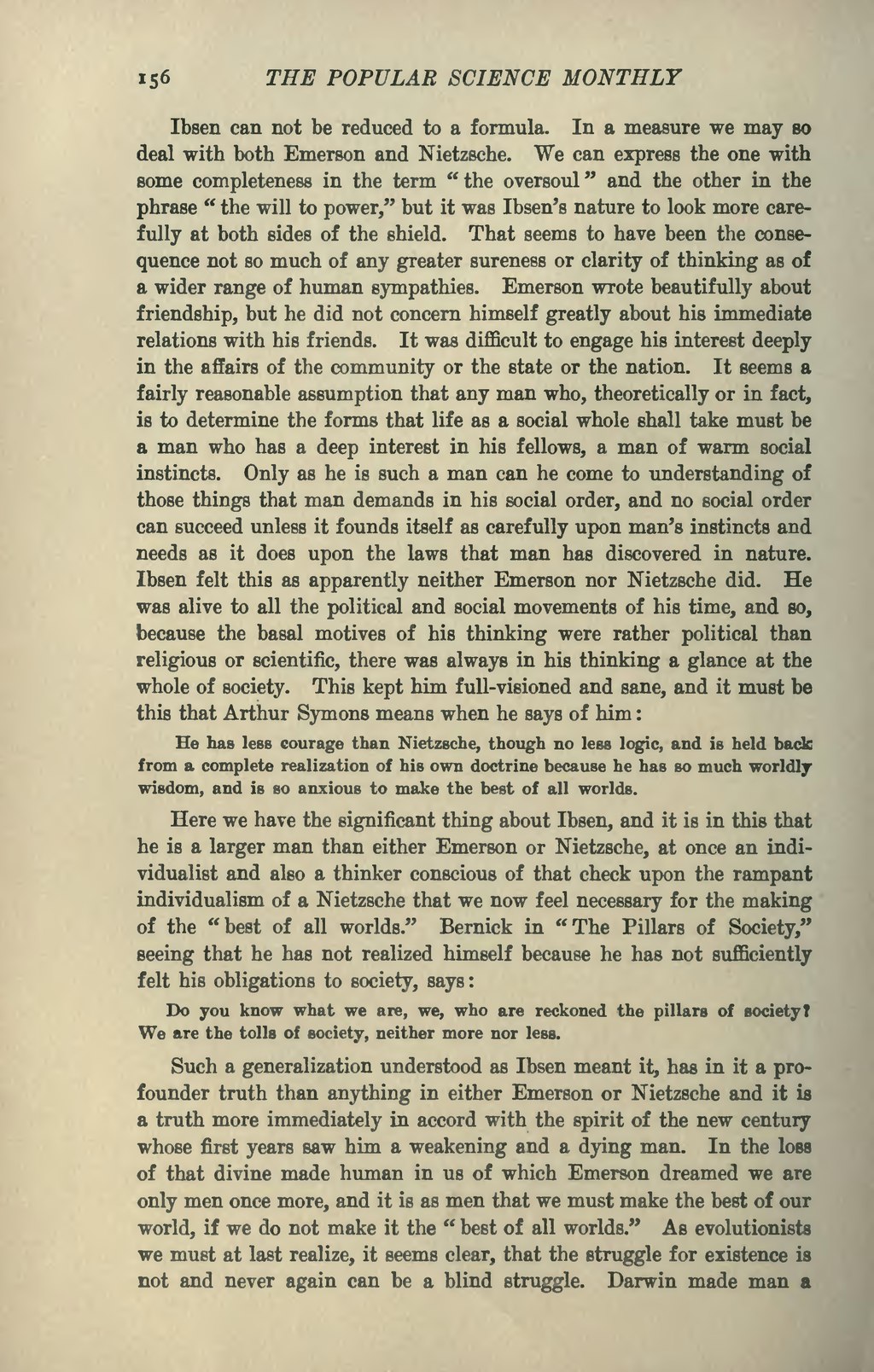Ibsen can not be reduced to a formula. In a measure we may so deal with both Emerson and Nietzsche. We can express the one with some completeness in the term "the oversoul" and the other in the phrase "the will to power," but it was Ibsen's nature to look more carefully at both sides of the shield. That seems to have been the consequence not 80 much of any greater sureness or clarity of thinking as of a wider range of human sympathies. Emerson wrote beautifully about friendship, but he did not concern himself greatly about his immediate relations with his friends. It was difficult to engage his interest deeply in the affairs of the community or the state or the nation. It seems a fairly reasonable assumption that any man who, theoretically or in fact, is to determine the forms that life as a social whole shall take must be a man who has a deep interest in his fellows, a man of warm social instincts. Only as he is such a man can he come to understanding of those things that man demands in his social order, and no social order can succeed unless it founds itself as carefully upon man's instincts and needs as it does upon the laws that man has discovered in nature. Ibsen felt this as apparently neither Emerson nor Nietzsche did. He was alive to all the political and social movements of his time, and so, because the basal motives of his thinking were rather political than religious or scientific, there was always in his thinking a glance at the whole of society. This kept him full-visioned and sane, and it must be this that Arthur Symons means when he says of him:
He has less courage than Nietzsche, though no less logic, and is held back from a complete realization of his own doctrine because he has so much worldly wisdom, and is so anxious to make the best of all worlds.
Here we have the significant thing about Ibsen, and it is in this that he is a larger man than either Emerson or Nietzsche, at once an individualist and also a thinker conscious of that check upon the rampant individualism of a Nietzsche that we now feel necessary for the making of the "best of all worlds." Bernick in "The Pillars of Society," seeing that he has not realized himself because he has not sufficiently felt his obligations to society, says:
Do you know what we are, we, who are reckoned the pillars of society? We are the tolls of society, neither more nor less.
Such a generalization understood as Ibsen meant it, has in it a profounder truth than anything in either Emerson or Nietzsche and it is a truth more immediately in accord with the spirit of the new century whose first years saw him a weakening and a dying man. In the loss of that divine made human in us of which Emerson dreamed we are only men once more, and it is as men that we must make the best of our world, if we do not make it the "best of all worlds." As evolutionists we must at last realize, it seems clear, that the struggle for existence is not and never again can be a blind struggle. Darwin made man a
